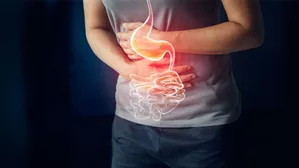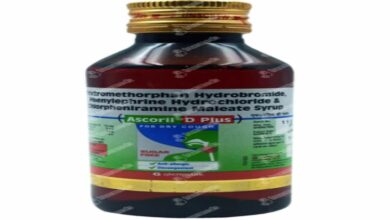New Delhi, April 14 (IANS) Young adults who lead stressful, sedentary lifestyles with poor dietary habits may be at high risk of developing irritable bowel syndrome (IBS), health experts warned on Sunday. IBS is a common disorder affecting the stomach and intestines, causing symptoms like abdominal cramping, diarrhoea, constipation, bloating, and gas.
According to health experts, IBS may be linked to an overly sensitive colon or immune system, making young people in the age group of 20-40 more susceptible. “Irritable Bowel Syndrome is a form of gastrointestinal disorder most commonly reported among young people due to increased stress, sedentary lifestyle, and poor dietary choices,” said Bir Singh Sehrawat, Director and HOD-Gastroenterology at Marengo Asia Hospitals, Faridabad.
Young individuals often consume fast food high in spices, oils, sugars, salts, fats, and artificial ingredients, along with aerated drinks. These items lack nutrition and can disrupt gut bacteria balance, triggering IBS symptoms. Excessive mental stress can also lead to hormonal imbalances affecting digestion and causing gastrointestinal issues like diarrhoea, constipation, gas, and discomfort.
“Factors like unhealthy diet choices, mental stress, and sedentary lifestyles are contributing to a rise in IBS cases in India,” stated Manish Kak, Consultant Gastroenterology at Manipal Hospital, Ghaziabad. Although IBS does not harm the digestive tract or increase colon cancer risk, it can disrupt daily routines and become a long-lasting problem.
To lower the risk of IBS, individuals are advised to follow a fibre-rich diet, avoid alcohol, engage in regular exercise, and manage stress through activities like yoga and meditation. However, it is crucial not to ignore symptoms such as bloating, constipation, diarrhoea, abdominal pain, or cramps, as untreated IBS can impact the colon and lead to complications. Consultation with a gastroenterologist is recommended upon experiencing these symptoms.

 Unlocking the Benefits of Medicare Part D Plans for 2025
Unlocking the Benefits of Medicare Part D Plans for 2025 Comparing Ascoril D Plus with other cough syrups and expectorants on the market
Comparing Ascoril D Plus with other cough syrups and expectorants on the market AstraZeneca’s Covishield To Cause Rare Yet Serious Side Effects
AstraZeneca’s Covishield To Cause Rare Yet Serious Side Effects Reinforce Your Smile: Discover the Benefits of Hydroxyapatite Toothpaste
Reinforce Your Smile: Discover the Benefits of Hydroxyapatite Toothpaste Shilajit for Women: Balancing Hormones and Supporting Wellbeing
Shilajit for Women: Balancing Hormones and Supporting Wellbeing Learn All About Truck Accident And What a Truck Accident Lawyer Can Help
Learn All About Truck Accident And What a Truck Accident Lawyer Can Help Fever: Symptoms, Treatments, Types, and Causes
Fever: Symptoms, Treatments, Types, and Causes IIT-K and BFI collaborate to drive healthcare innovation in India
IIT-K and BFI collaborate to drive healthcare innovation in India